Related Research Articles
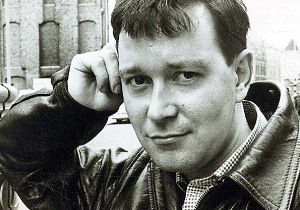
John Kingsley Orton, known by the pen name of Joe Orton, was an English playwright, author, and diarist.
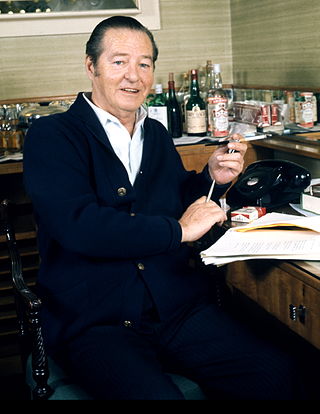
Sir Terence Mervyn Rattigan was a British dramatist and screenwriter. He was one of England's most popular mid-20th-century dramatists. His plays are typically set in an upper-middle-class background. He wrote The Winslow Boy (1946), The Browning Version (1948), The Deep Blue Sea (1952) and Separate Tables (1954), among many others.

Kenneth Leith Halliwell was a British actor, writer and collagist. He was the mentor, boyfriend, and murderer of playwright Joe Orton.

Entertaining Mr Sloane is a three-act play written in 1963 by the English playwright Joe Orton. It was first produced in London at the New Arts Theatre on 6 May 1964 and transferred to the West End's Wyndham's Theatre on 29 June 1964.

Loot is a two-act play by the English playwright Joe Orton. The play is a dark farce that satirises the Roman Catholic Church, social attitudes to death, and the integrity of the police force.

Kenneth Cranham is a Scottish film, television, radio and stage actor. His most notable screen roles were in Oliver! (1968), Up Pompeii (1971), Chocolat (1988), Layer Cake (2004), Gangster No. 1 (2000), Hot Fuzz (2007), Maleficent (2014), and Film Stars Don't Die in Liverpool (2017).
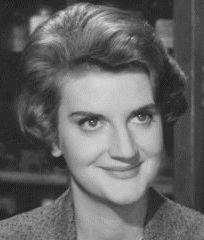
Rosalind Marie Knight was an English actress. Her career spanned 70 years on stage, screen, and television. Her film appearances include Blue Murder at St Trinian's (1957), Carry On Nurse (1959), Carry On Teacher (1959), Tom Jones (1963), and About a Boy (2002). Among her TV roles were playing Beryl in the BBC sitcom Gimme Gimme Gimme (1999–2001) and Cynthia Goodman in Friday Night Dinner.
The Wallenquist Organization is a criminal organization in the fictional universe of Frank Miller's Sin City. It is led by Herr Wallenquist, a German-American mobster shrouded in mystery. The organization has a broad base of criminal enterprise to its name, including drug smuggling, contract killing, racketeering, organ harvesting and human trafficking for the purpose of illegal adoption and slavery, as well as having many city officials on their payroll at one time or the other. They employ scores of mercenaries, including former IRA members, and implied Neo-Nazis.
Up Against It is an unproduced script by Joe Orton, written in 1967 for the Beatles at the height of their fame.

The Erpingham Camp (1966) is a 52-minute television play by Joe Orton, which was later performed on stage.
Joyce Porter was an English crime fiction author. She was born in Marple, Cheshire. In Macclesfield she attended the High School for Girls, then King's College London. served in the Women's Royal Air Force from 1949 to 1963. An intensive course in Russian qualified her for intelligence work for the WRAF. She left the service determined to pursue a full-time career in writing, having written three detective novels already.
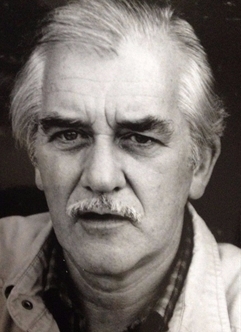
Bernard Gallagher was an English actor known for his stage work, including with the National Theatre and the Royal Court; and his many appearances in television soap operas and dramas. He was born in Bradford, West Riding of Yorkshire.
Riff Raff Theatre is a theatre company based in Wexford, Republic of Ireland. The company was founded in 1981 by four theatre practitioners Michael Way, Irene Wright, Leo Meehan and Gerard Hanton and remains Wexford's first full-time theatre company. Classified as Independent Professional Fringe Theatre, they specialise in premiering new works or in new interpretations of contemporary classics.

Paul Clayton is an English actor, director and author.
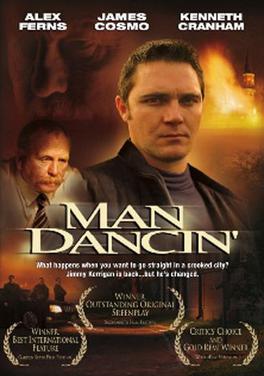
Man Dancin' is a 2003 Scottish crime drama film directed by Norman Stone and starring Alex Ferns, James Cosmo, Tom Georgeson, Kenneth Cranham and Jenny Foulds.
John Peter Tydeman OBE was an English producer of radio and director of theatre plays. He was responsible for commissioning and directing the early plays of Caryl Churchill, Joe Orton, Tom Stoppard and Sue Townsend.

Shameless is an English comedy drama television programme created and executive produced by Paul Abbott. Set in Manchester on the fictional Chatsworth council estate, the show revolves around the dysfunctional working-class Gallagher family, depicting and commenting on English working-class life and culture.
References
- ↑ Moya Jones-Petithomme (1990). "Gorilla in the Roses". In Laurent Baridon (ed.). Viollet-le-Duc et l'architecture selon les lois de la nature. Publications de la Maison des sciences de l'homme d'Aquitaine. Vol. 151. Presses Univ de Bordeaux. p. 67. ISBN 2-85892-155-5.
- ↑ "The Ruffian on the Stair/People With Problems" Chicago Reader. Retrieved 2017-03-21.
- ↑ "Books to give you hope: Prick Up Your Ears by John Lahr" The Guardian. Retrieved 2017-03-21.
- ↑ John M. Clum (2000). Still acting gay: male homosexuality in modern drama. Palgrave Macmillan. p. 110. ISBN 0-312-22384-6.
- ↑ "Unseen Joe Orton story The Visa Affair turned into radio play" The Telegraph. Retrieved 2017-03-21.
- 1 2 "The Ruffian on the Stair". 31 August 1964. p. 29 – via BBC Genome.
- ↑ "Feature: The plays of Joe Orton". Sydney Theatre Company. 23 August 2011.
- ↑ Mastoris, Strat (28 May 2013). "The Ruffian on the Stair".
- ↑ "The Ruffian on the Stair by Joe Orton, Royal Court Theatre, 1966".
- ↑ "Crimes of Passion by Joe Orton". www.petergill7.co.uk.
- ↑ "The Ruffian on the Stair (1973)". BFI. Archived from the original on 17 October 2019.